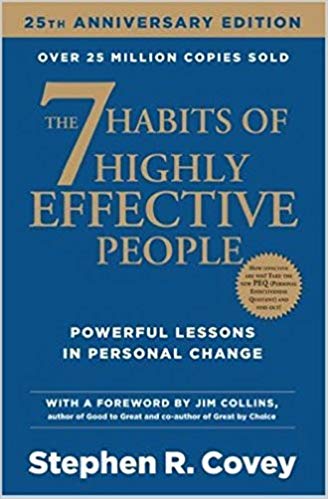

This article is an excerpt from the Shortform summary of "The 7 Habits of Highly Effective People" by Stephen Covey. Shortform has the world's best summaries of books you should be reading.
Like this article? Sign up for a free trial here .
Do you read self-help books? Have you ever thought that reading self-help literature can actually hinder, not help, your progress and self-esteem?
While the desire to better yourself is commonly accepted as a positive character trait, it can be taken too far—damaging both how you view yourself and how you view other people. There are two main problems with self-help books: 1) they can ingrain the message that there’s something inherently wrong with you, and 2) they overemphasize the self.
Keep reading to learn about the problems with self-help books and the self-help genre as a whole.
Self-Help Implies That Something Needs Fixing
Self-improvement ideas can ingrain the message there’s something inherently wrong with people—and yourself. The idea that there is always something to be improved about yourself can push some people to believe that they are fundamentally and perpetually inadequate, which can then give rise to feelings of toxic perfectionism. Ironically, the self-acceptance they lack is one of the most important factors in self-help success.
The problem with self-help books is that they tend to push the narrative, “you can be successful if you try hard enough.” Unfortunately, it implies this inverse statement: “if you aren’t successful, you haven’t tried hard enough, and it’s entirely your fault.” This neglects a wide body of research that suggests a person’s success is often not fully, or even primarily, in his or her control. For many people, larger external forces like poverty, social biases, learned helplessness, or other headwinds limit the extent to which self-improvement principles can make a difference. In comparison, people who benefit from socioeconomic tailwinds may believe their self-improvement character traits, and not their advantages, were the root to their success; in turn, these people may lack empathy for people who didn’t have the same tailwinds.
Self-Help and Self-Care Emphasize the Self
According to Stephen Covey, the self-help industry is one area of society that particularly emphasizes the self. The same can be said of self-care, which became a mainstream mantra in the 2010s and has been described as the gentler cousin of highly disciplined self-help. Regardless of the method, both concepts have the same flaw: They focus only on improving and nurturing yourself, with no mention of how this is inextricably tied with helping your community.
The term “self-care” is often credited to Audre Lorde, a black, lesbian, feminist writer and civil rights activist. In her 1988 book A Burst of Light, Lorde described self-care as “self-preservation” and “an act of political warfare.” For Lorde, who was battling cancer at the time, taking care of herself was essential to her ability to continue fighting systemic oppression. By engaging in this “act of political warfare,” Lorde was actually ensuring that she could keep working to make the world better for her communities.
However, Lorde’s interdependent intentions have been distorted by the current take on self-care, which often condones pulling away from your community in order to take care of yourself. (Not to mention, when Lorde wrote of self-care as “self-preservation,” she was speaking as a target of multiple layers of oppression as a black woman, a lesbian, a feminist, and an activist. By contrast, many modern self-care evangelists hold more privileged places in society; their self-preservation is a buffer not against oppression but rather against burnout from a relentless pressure to achieve.)
While modern self-care heavily emphasizes the self, Covey includes insight that suggests it may reveal a paradigm of dependence rather than independence. He writes that sometimes people do selfish things in the name of independence, such as leaving their marriages and families. In reality, these acts typically reveal a lack of independence: In contrast to their claims, these people are often struggling with dependencies such as feeling controlled or victimized by other people and circumstances, so they change the circumstances instead of developing true emotional independence.
———End of Preview———

Like what you just read? Read the rest of the world's best summary of "The 7 Habits of Highly Effective People" at Shortform . Learn the book's critical concepts in 20 minutes or less .
Here's what you'll find in our full The 7 Habits of Highly Effective People summary :
- How to prioritize the hundred tasks you have to focus on the one or two that really matter
- The right way to resolve every disagreement and argument
- How to avoid burning out and succeed over 20+ years






